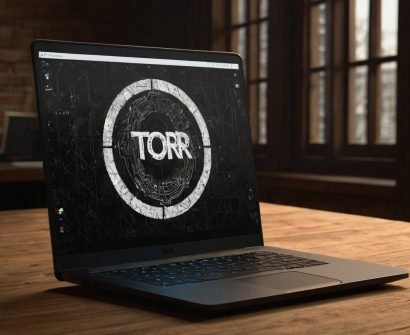Currently Empty: ₹0.00
Comparing the Best Cyber Security Certifications: Which One is Right for You?

Hey there, cyber security enthusiasts!
Today, we’re diving into the world of certifications in cyber security. Whether you’re just starting out in the field or looking to advance your career, certifications can play a key role in your success.
In this blog series, we’ll explore the different types of cyber security certifications available, how to choose the right one for you, and tips for preparing
BEGINNER CERTIFICATIONS

CompTIA A+
The CompTIA A+ exam checks whether the skills and knowledge of entry-level IT professionals in the IT support field are valid. A wide range of topics are covered by the exam such as hardware and software troubleshooting, networking, operating systems, security and mobile devices. For someone to succeed in the exam, they must be able to grasp fundamental computer-related ideas. Overall, the CompTIA A+ exam is a valuable credential for individuals looking to start a career in IT support and requires a combination of technical knowledge and practical experience.
To earn the CompTIA A+ certification, you’ll need to pass two exams:
CompTIA A+ 220-1001 (Core 1): This exam covers topics like mobile devices, networking technology, hardware, virtualization, and cloud computing.
CompTIA A+ 220-1002 (Core 2): This exam focuses on topics such as operating systems, security, software troubleshooting, and operational procedures.
CompTIA Linux+
Candidates must have a profound knowledge of Linux administration, troubleshooting, security and scripting for passing the CompTIA Linux+ exam as it is a strict certification examination tailored to check one’s capability to the Linux software range which includes operating systems implementation level examination on physical or virtual infrastructure hardware through system installation processes until server maintenance aspects, network software installations as well as programming tasks typically performed by network administrators both in production environments (UNIX) .It is recommended that candidates have at least 12 months of hands-on experience working with Linux systems before attempting the exam.
CompTIA Network+
The CompTIA Network+ is an exam that measures if one has the essential knowledge required to be in a networking role.Candidates should also have hands-on experience with networking equipment and be able to configure, maintain, and troubleshoot networks effectively. Overall, the CompTIA Network+ exam is designed to assess a candidate’s ability to effectively design, implement, and maintain networks, making it a valuable certification for individuals pursuing a career in IT networking.
CCNA
A CCNA certification can provide you with a solid foundation in networking and open doors to various career opportunities, such as network administrator, network engineer, or security specialist roles.The CCNA exam, or Cisco Certified Network Associate exam, is a certification program offered by Cisco for IT professionals who want to demonstrate their ability to install, configure, and operate medium-sized routed and switched networks. To successfully pass the CCNA exam, individuals are required to have a strong understanding of networking fundamentals.
CompTIA Security+
The CompTIA Security+ examination certifies one’s cybersecurity skills around the world, thus being known internationally. It is not limited to a particular area but instead spreads across various aspects concerning IT Security; Network Security, Threats/ Vulnerabilities and Identity Management just but to mention few out of many others. The exam can only be passed by those candidates who have got a firm grounding in information technology security principles and practical experience in building safe networks as well as defending systems from intruders. Besides, being good at networking.
ADAVANCED CERTIFICATES

CISSP
The Certified Information Systems Security Professional (CISSP) is a globally recognized certification offered by the International Information System Security Certification Consortium (ISC)². It is designed for experienced security professionals to validate their knowledge and expertise in the field of information security.
Who needs to have the CISSP license?
The CISSP accreditation is best suited for security consultants, IT managers, security directors, IT auditors, security analysts and other professionals with responsibility for managing, designing and implementing security measures within their organization. It is meant for those who have a minimum of five years full-time experience in two or more of the eight CISSP domains:
- Security and Risk Management
- Asset Security
- Security Architecture and Engineering
- Communication and Network Security
- Identity and Access Management (IAM)
- Security Assessment and Testing
- Security Operations
- Software Development Security
CISA
The Certified Information Systems Auditor (CISA) is a globally recognized certification for professionals who audit, control, monitor, and assess an organization’s information technology and business systems.
Information Systems Audit and Control Association (ISACA) created CISA to exhibit an individual’s skill on how to handle vulnerabilities, ensuring compliance with industry standards, and implementing controls within a corporate setup.
Who Should Pursue CISA?
CISA is most suitable for professionals with roles such as:
- IT auditors
- IT security professionals
- IT risk analysts
- IT compliance analysts
- Security consultants
Overall, the CISA certification can be a valuable asset for those looking to advance their careers in cybersecurity, particularly in the area of auditing and controlling information systems.
CISM
The Certified Information Security Manager (CISM) certification, provided by ISACA, is an advanced cybersecurity certification designed for individuals with a thorough understanding of information security management. This certification is intended for professionals who are responsible for overseeing, planning, and executing the information security program within their organization.
Who Should Pursue CISM Certification?
The CISM certification is ideal for:
- Information security managers
- IT consultants
- IT auditors
- Senior IT professionals responsible for information security
- Security architects and engineers
Individuals holding this certification are highly sought after due to their expertise and ability to create and oversee robust information security programs within diverse organizations.
GSEC
The GIAC Security Essentials Certification (GSEC) is an advanced cybersecurity certification that showcases an individual’s proficiency in mitigating security threats and vulnerabilities across diverse systems. Developed by Global Information Assurance Certification (GIAC), this credential is ideal for security professionals, IT managers, and network administrators seeking to bolster their understanding of fundamental cybersecurity principles and methodologies.
Key Features of GSEC:
Comprehensive coverage of security concepts including risk management, cryptography, access control, authentication, network security, wireless security, web application security, and incident response.
- Hands-on approach with practical, real-world situations and problem-solving skills development through labs and exercises.
- Vendor-neutral program teaching concepts and techniques applicable across different environments.
- Globally recognized certification for career advancement in the cybersecurity industry.
- Earning the GSEC certification highlights your expertise in cybersecurity, proving you can safeguard information systems and networks. This creden tial enhances your career prospects and sets you apart in the competitive cybersecurity field.
GIAC
The GIAC Penetration Tester (GPEN) certification is an advanced credential for professionals seeking expertise in penetration testing and ethical hacking. It validates the ability to conduct legal, systematic tests to assess the security of networks, systems, and applications.GIAC Certifications cover Cyber Defense, Penetration Testing, Incident Response, Management & more. To earn one, pass a proctored exam with multiple-choice questions. Benefits include better career opportunities, higher pay, and industry recognition.Validating your skills through a GIAC certification can boost your cybersecurity career.
OSCP
Offensive Security Certified Professional (OSCP)
The OSCP certification is considered as one of the most renowned certifications in cybersecurity domain. It is meant to gauge one’s practical knowledge on how to recognize security threats or weaknesses present in targeted systems then exploit them; also it requires you to know offensive security methodology that should be used for checking the level of security deployed on different computer networks, as well as being able to apply it practically on real situations.
Key Topics :
- Penetration testing methodologies
- Advanced information gathering techniques
- Buffer overflow attacks
- Web application attacks
- Various exploitation techniques
- Privilege escalation
- Client-side attacks
- Post-exploitation techniques
- Basic scripting and automation
Obtaining the OSCP certification can be a challenging and rewarding journey that provides you with practical skills and industry recognition, enabling you to stand out as a cybersecurity professional and advance your career in the field.
CREST
CREST is a non-profit organization offering certifications in cybersecurity. Their exams include penetration testing and simulated attack management. Its certifications represent dedication to continual professional advancement within the fast-paced realm of information security. Benefits associated with attaining CREST Certifications are:
- Industry Standardization
- Credibility Validation
- Community supportiveness
CREST Examinations and Certifications
CREST Practitioner Security Analyst (CPSA)
CREST Registered Penetration Tester (CRT)
CREST Certified Infrastructure Tester (CCIT) and CREST Certified Web Application Tester (CCWAT)
CREST Certified Simulated Attack Manager (CCSAM) and CREST Certified Simulated Attack Specialist (CCSAS):
In the rapidly evolving field of cyber security, CREST certifications demonstrate a commitment to continuous learning, growth, and professionalism.
Certified Ethical Hacker (CEH)
CEH is a high-level certification that is specifically designed to give cybersecurity professionals the knowledge and skills they need to combat the constantly changing world of cyber attacks. The certification is conducted by the EC-Council, which is widely known for its expertise in information security certifications.
Key Objectives of CEH Certification:
- Understand the ethics and legal requirements of ethical hacking
- Identify and analyze common cyber threats: malware, social engineering, network attacks
- Utilize latest penetration testing tools to uncover vulnerabilities
- Implement defensive measures to protect against cyber
- Preparation
To prepare for the CEH exam, candidates can follow the EC-Council’s official training course or opt for self-study. The recommended resources include:
Preparation for CEH Exam:
- Follow EC-Council’s official training course or choose self-study
- Use recommended resources: CEH training course, study guide, practice exams, books, articles, online resources
Recertification:
- Earn 120 ECE within 3 years to retain certification
- Obtain credits through training, workshops, conferences, and continuous learning in information security.
In conclusion, certifications play a crucial role in the field of cybersecurity by validating professionals’ skills, expertise, and commitment to staying current with evolving threats and technologies. The certifications not only improve the industry’s trust and esteem but they also provide comfort to employers and customers of the personal capabilities held. Moreover, such as CEH and CREST, certifications exist for specific training processes which have practical applications enhancing cyber security levels as well as defending them against destructive attacks.








